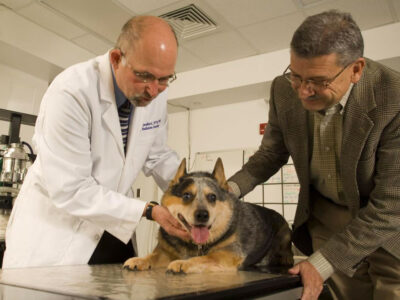Ukrainian refugees and displaced persons with cancer are fighting a double war for survival—which is why aid networks and providers must prioritize psychosocial oncology, said Csaba Dégi, executive secretary of the International Psycho-Oncology Society.
In a panel discussion this week, four cancer centers directors described how their experiences as immigrants have shaped their approach to oncology and the U.S. healthcare system.
When a Galapagos tortoise suffering from sarcoma needed help in 1983, zookeepers at the Staten Island Zoo called Mark Dewhirst, DVM, PhD, a young scientist at the University of Arizona who had been conducting clinical trials on dogs using radiotherapy.
More than 850 children with cancer have been evacuated or are in the process of evacuation from Ukraine, 45 days after a collaboration of international organizations began transporting pediatric cancer patients out of the country.
On March 7, or 11 days into Russia invasion, Mike Morrissey, chief executive of the European Cancer Organisation, approached the society’s board to inquire as to whether they should convene a special network for Ukraine.
Jerome Yates became a cancer doctor during a time when medical oncologists were thought to be what he describes as “the garbage collectors of medicine.”
As a community, we strive for cancer treatment and research that is data-driven, patient-centered, and that meets the highest standards of quality and safety. Yet, as physicians and advocates, we’ve become aware of a situation where these ambitions are not being met.
After nearly five years in the federal government—at both NCI and FDA—Ned Sharpless is stepping down from his position as NCI director.
Chemotherapy at Ukraine’s National Cancer Institute in Kyiv no longer has to be administered in underground bomb shelters.
Join the Cancer History Project April 20 at 7 p.m. EST for a panel moderated by Dr. Narjust Duma of Dana-Farber Cancer Institute. Four directors of NCI-designated cancer centers will discuss their unique perspectives as immigrants—and leaders in oncology. Topics will cover their unique pathways to leadership, diversity in medicine, and challenges faced by international medical graduates.















